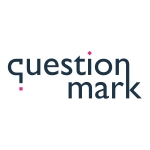�As their popularity rises, managers need to assess the skills development needs of multigenerational teams
NEW YORK--(BUSINESS WIRE)--#LnD--Multigenerational teams are on the rise, with managers and workers embracing benefits. Yet employers need to recognize that diverse teams can present new and different demands on skills training.
A recent survey found a significant majority (76 percent) of employees want to work in diverse teams.1 Over four out of five (83 percent) global business leaders recognize multigenerational teams are the key to growth and long-term success.2
Questionmark, the online assessment provider, is calling for employers to design training programs that unlock the potential of every member of those teams by addressing individual needs.
For example, a recent Forrester study3 found data literacy has become the most sought-after skill for entry-level candidates. Yet barely half (48 percent) of academic institutions currently teach data skills. On the other hand, early-career workers may need less training in the use of cloud-based productivity tools. In a survey, over half (51 percent) of millennials born after 1980 said they use such tools. By contrast, only one third (33 percent) of Baby Boomers and Generation X (born between 1946 and 1980) do so.4
John Kleeman, Founder of Questionmark, said: �Employers and employees see the value of multigenerational teams. But they mean employers need to tailor training and certification programs to reflect the diverse experience. Skills training is the great leveller that makes multigenerational teams possible. Employers can use testing and assessment to design more individualized programs.�
Questionmark has identified a number of benefits to employers of supporting multigenerational teams:
- Research suggests age-diverse teams can come up with more innovative ideas5
- Expanding the age diversity of a team grows the talent pipeline, both from inside and outside the organization
- Multigenerational teams encourage modern practices such as reverse mentoring6
- Choosing reskilling over redundancy can retain valuable institutional knowledge
Notes to editors
About Questionmark
Questionmark unlocks performance through reliable and secure online assessments.
Questionmark provides a secure enterprise-grade assessment platform and professional services to leading organizations around the world, delivered with care and unequalled expertise. Its full-service online assessment tool and professional services help customers to improve their performance and meet their compliance requirements. Questionmark enables organizations to unlock their potential by delivering assessments which are valid, reliable, fair and defensible.
Questionmark offers secure powerful integration with other LMS, LRS and proctoring services making it easy to bring everything together in one place. Questionmark's cloud-based assessment management platform offers rapid deployment, scalability for high-volume test delivery, 24/7 support, and the peace-of-mind of secure, audited U.S., Australian and European-based data centers.
_________________________
1https://b2b-assets.glassdoor.com/glassdoor-diversity-inclusion-workplace-survey.pdf
2https://www.aarpinternational.org/resources/global-employer-survey
3https://www.tableau.com/sites/default/files/2021-06/Tableau_Data_Literacy_Report.pdf
4https://connect.comptia.org/content/research/managing-the-multigenerational-workforce-2018
5https://www.randstad.com.sg/about-us/news/singapore-employees-prefer-their-managers-to-be-of-the-same-age-or-older-randstad-workmonitor-research/
6https://hbr.org/2019/10/why-reverse-mentoring-works-and-how-to-do-it-right
Contacts
For more information:
US: Kristin Bernor, external relations: [email protected] +1 203.349.6438
UK: Peter Sigrist: [email protected] +44 7720 056 981
Australia and New Zealand: Chelsea Dowd: [email protected] +61 2 8073 0527












